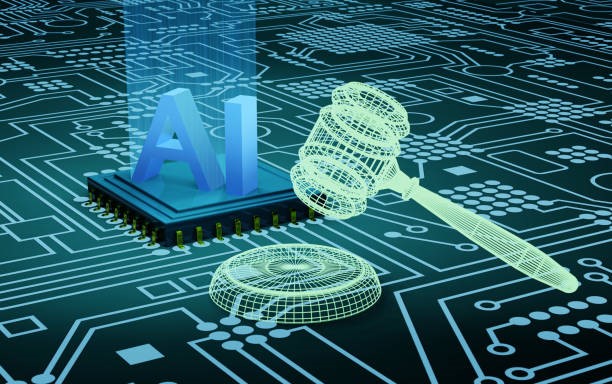
The new AI Act in the EU: what does the future of AI hold?
In recent years, we have witnessed rapid advances in artificial intelligence (AI), which is transforming sectors ranging from healthcare to finance to marketing. With these developments comes the need for regulation to ensure the safe and ethical use of AI. The European Union has responded to this need by adopting a new AI Actwhich has far-reaching implications for the future of artificial intelligence. What does this new law bring and how will it affect different sectors?
VALIDITY OF THE AI ACT
The AI Act was officially announced by the European Commission on 21 April 2021 and is part of a broader EU strategy to regulate new technologies and ensure that they are used ethically and with respect for citizens' fundamental rights.
It will be effective from 1 January 2025, giving firms time to prepare for the new requirements and ensure their AI systems comply with the new rules.
MAIN OBJECTIVES OF AI ACT
- Ensure the safety and fundamental rights of citizens: AI systems must be designed and used in a way that does not compromise people's safety and respects their fundamental rights, such as privacy and non-discrimination.
- Transparency and accountability: AI systems must be transparent and accountable, which includes clearly informing users that they are interacting with the AI system and allowing human oversight of AI decision-making.
- Promoting innovation and competitivenessA: The law aims to create the conditions for innovation in AI and ensure that European companies are able to compete in the global market.
CLASSIFICATION OF RISKS
One of the key elements of the AI Act is the classification of AI systems according to the risks they pose. This classification includes four categories:
- Unacceptable risk: AI systems that pose a clear threat to the security, rights or freedoms of people are prohibited. Examples include AI used for social evaluation of citizens or manipulation of human behaviour.
- High risk: AI systems that can significantly impact people's lives, such as recruitment systems, credit scoring or healthcare applications. These systems must meet strict requirements for transparency, correctness and robustness.
- Limited risk: AI systems that require a degree of transparency, such as chatbots or recommender systems. Users must be informed that they are interacting with an AI system.
- Minimal risk: AI systems that pose no or minimal risk are not regulated, such as video games or spam filters.
IMPACTS ON MARKETING AGENCIES AND E-COMMERCE COMPANIES
Marketing agencies
For marketing agencies, the AI Act brings several key changes:
- Transparency and accountability: Agencies will need to ensure that their AI tools are transparent and do not violate users' rights. This includes informing users about the use of AI and ensuring that their personal data is protected.
- Innovation and competitiveness: The ability to use regulatory sandboxes to test new AI technologies without the risk of legal sanctions can enable agencies to innovate faster and ensure they are competitive in the marketplace.
- Accuracy and ethics: AI systems used for ad targeting and data analysis will need to be accurate and ethical, which can increase client trust and improve campaign effectiveness.
E-commerce companies
The AI Act also has significant implications for e-commerce companies (e-shops):
- Improving customer experience: e-shops will need to ensure that their AI systems are transparent and ethical, which can improve customer trust and satisfaction.
- Data protection: companies will need to pay close attention to protecting their customers' personal data and ensuring that AI systems do not misuse this data.
- Process optimization: the AI Act can support the use of AI to optimize logistics and sales processes, which can increase efficiency and reduce costs.
POSSIBLE IMPACTS ON OTHER SECTORS
Healthcare
In healthcare, the AI Act may place increased demands on the transparency and accuracy of AI systems used for diagnosis and treatment. Healthcare facilities will need to demonstrate that their AI tools are safe and reliable, which may slow adoption but will also increase patient confidence in these technologies.
Finance
In the financial sector, the AI Act will have an impact on the systems used to assess creditworthiness and prevent fraud. Firms will need to ensure that their AI models are not discriminatory and that they are transparent in their decision-making. This may lead to greater investment in the development of ethical AI systems and increased cooperation with regulators.
CHALLENGES AND OPPORTUNITIES
The new AI Act in the EU is an important step towards regulating AI to ensure its safe and ethical use. The adoption of the AI Act brings a number of challenges, including the need to meet new regulatory requirements, which can be particularly challenging for small and medium-sized enterprises. On the other hand, these regulations may lead to the creation of a single market for AI in the EU, which could boost innovation and competitiveness of European companies in the global market.
The AI Act also emphasizes education and training to ensure that the workforce is prepared for the changes coming with the increasing use of AI. This includes not only technical skills, but also an understanding of the ethical and legal aspects of AI.
This is the fourth and final article in our mini series on AI in marketing.
In previous articles we have looked at this:
How AI is changing marketing, in general and also on Using AI in email marketing: a revolution in customer communication and on AI in performance marketing: a revolution in campaign optimization.
If you're solving AI challenges for your business or e-commerce, check out how to use AI in the areas of performance marketing and email marketing.
Keep following us!











